PRESS
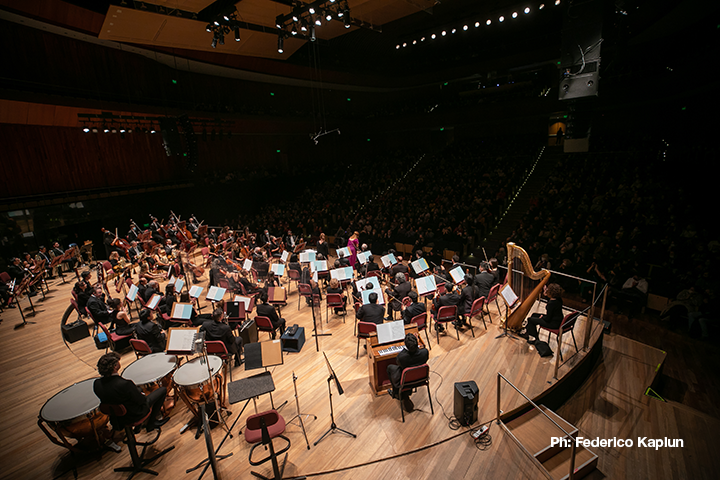
A GREAT CONCERT
It was evident in the “Poemas de los mares australes” by Alberto Williams that Lucía Zicos developed an arduous and highly effective work.
Then it was the turn of Richard Strauss and his “Four last songs”, Zicos managed to extract wonderful passages from the orchestra with notable interventions from all sectors of the ensemble.
The closing came from the “Konzertmusik”, Op. 50 for strings and brass by Paul Hindemith. Lucía Zicos did a job that allowed her to round off a wonderful job. Moments of brilliance and noble smoothness on the strings and very good interventions of the brass resulted in the immediate approval of the audience, which required the conductors greeting three times.
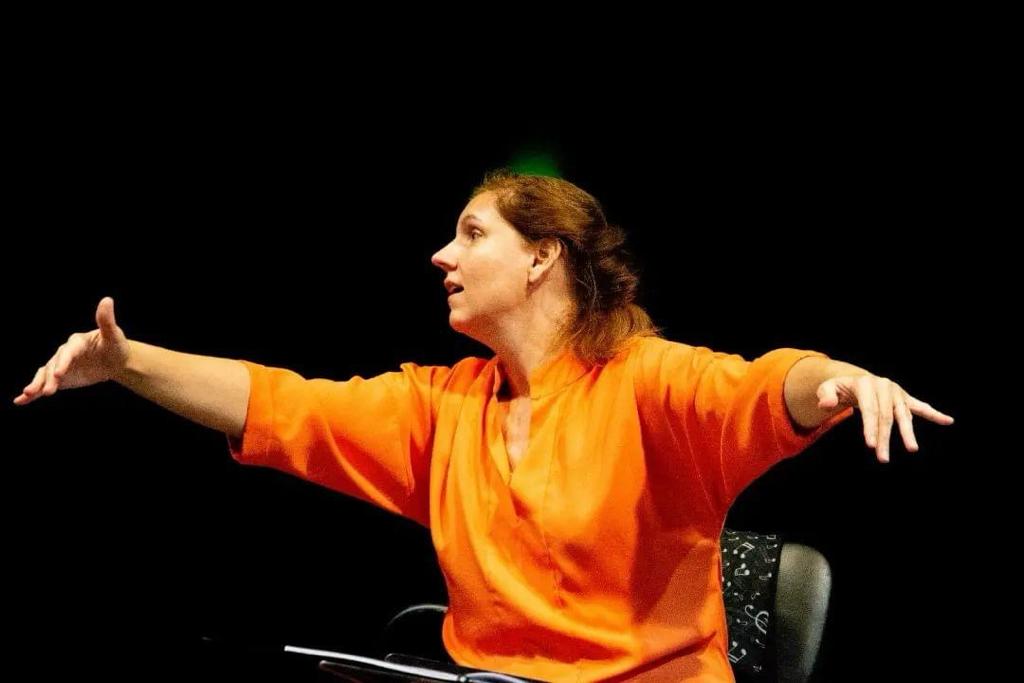
Important conducting debut
Of absolute empowerment, the guest conductor gave an account of profound knowledge, revealing with complete propriety the internal plot of the piece. Convincing push in the frenetic initial Allegro di molto, with neuralgic tempi and excellent contrasts, continuing with an idiomatic exposition of the Andante, likewise, a sovereign handling of the Trio in the Menuetto (of great depth, giving great singable sense of the “inner voices” ), as well as notable expressive progressions in the final Allegro con fuoco. Complete adherence of the musicians to the authorized interpretive requirements, achieving excellent sound quality and complete adjustment.
In short, an important debut in Santiago by one of the most outstanding Latin American conductors, meriting greater collaborations with national orchestras…
THE NATIONAL SYMPHONIC IN A GREAT NIGHT
Zicos fully understood the work (R. Strauss: Last four songs): if the singing is essential, the orchestration often adds moments without the voice, with well-played horn and concertmaster solos, and the orchestra is large, with all the richness of timbres of the best Strauss.
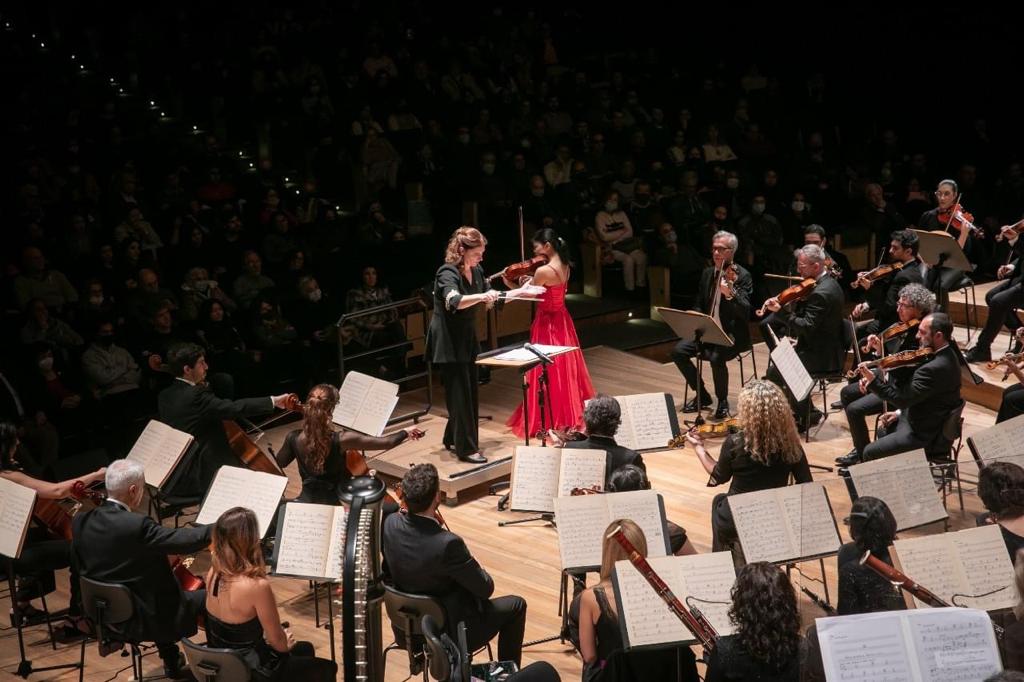
ONE OF THE MOST IMPORTANT CONCERTS OF THE ORCHESTRAS HISTORY.
In the center of the program: the Concerto for violin and orchestra by Alberto Ginastera. Together with the soloist Azusa Saito, Zicos not only began a permanent coming and going but also performed a decidedly spectacular concert in which the “Filiberto” showed itself as a notable Symphony Orchestra. There was total sound balance, marking down to the smallest details, a formidable sound amalgam that led to a simply extraordinary finale. The applause that the public gave to this work was amply justified, as was the fact that, fortunately, absolute silence was maintained throughout the entire concert.
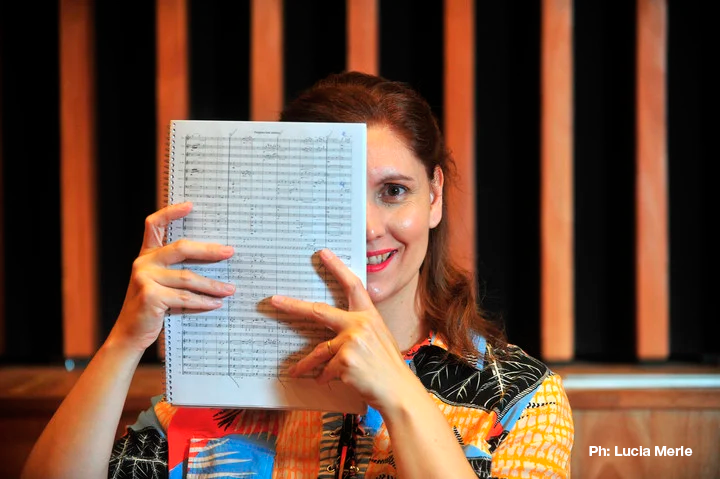
A talent
Lucía Zicos: the classical music conductor of the moment
She is one of the few women who fulfill that role in a profession where men are the majority.
She razes her temper as soon as she steps on stage. She transforms, as if it were a beast in constant movement. Literally, she is the one who directs the baton: everyone looks at her and carries out her orders to the score through her gestures: some soft, harmonious, and others more ferocious or bombastic.
Concert by the National Symphony Orchestra with Lucía Zicos and Daniela Tabernig
Lucía Zicos, on this occasion addressed works absent from the usual repertoire, of great technical requirement and musical value. A double merit: rescuing them and being able to performs them as she did with one of the most important symphonic organizations in the country.
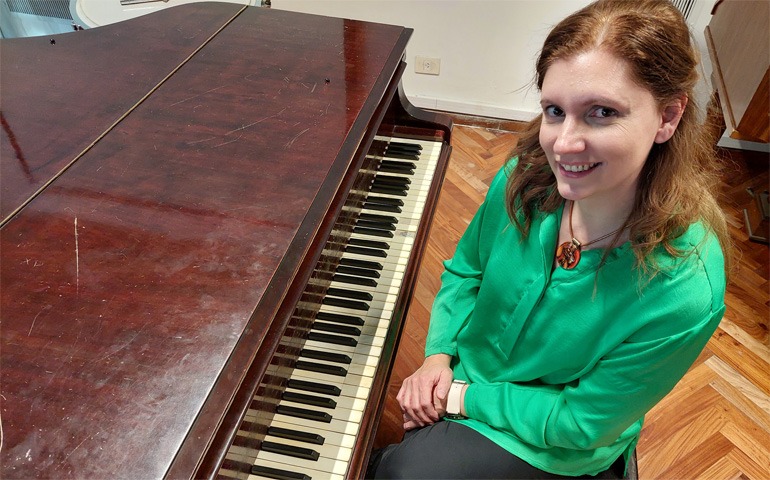
Lucía Zicos: “Music has the power to transform us individually and collectively”
The Argentine conductor received a visit from Sophia to talk about the enormous power that music has to transform our personal and collective universe, and explain to us why it is always worth letting ourselves be traversed by its magic.
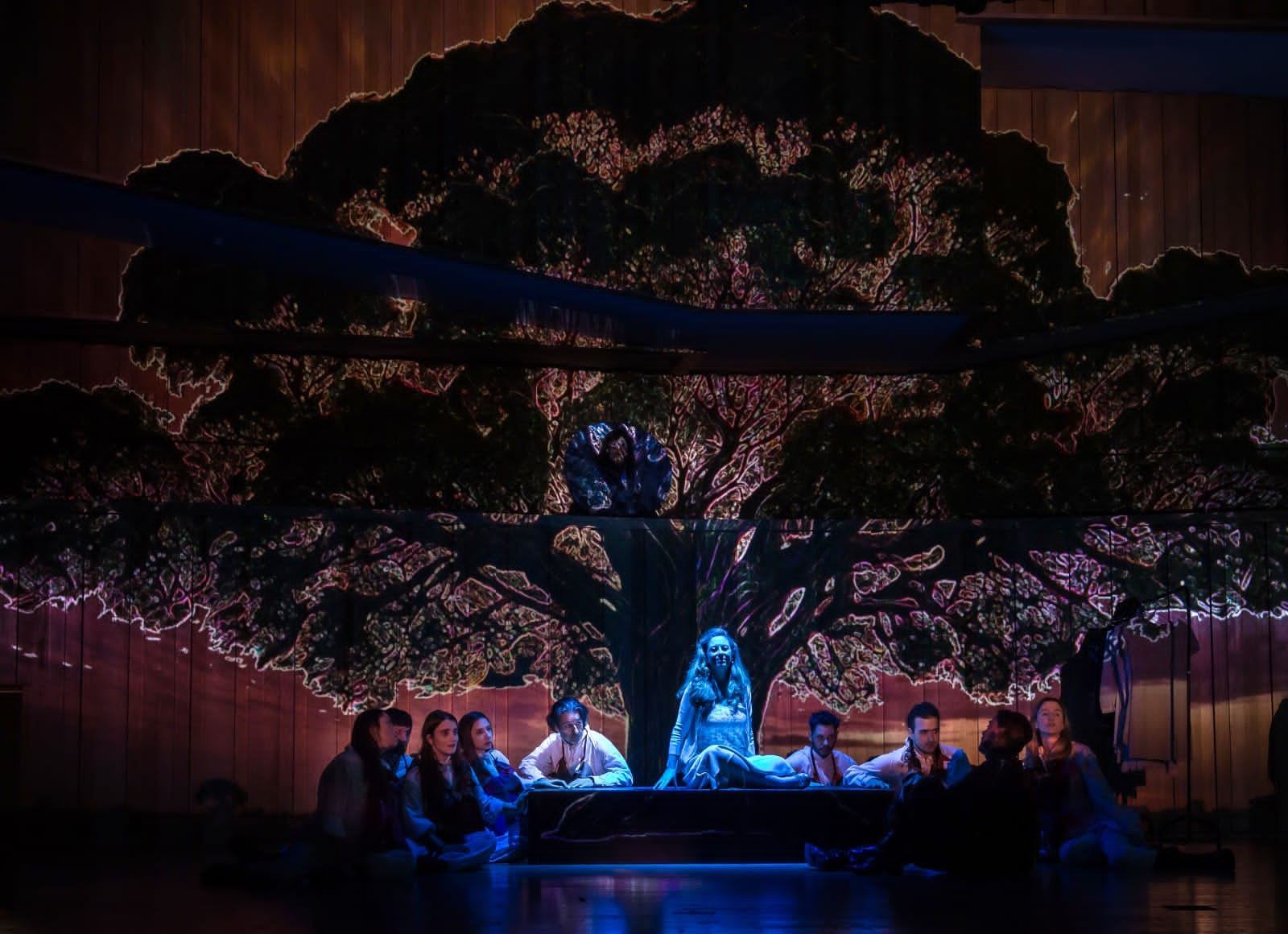
TODAY’S TOPIC TREATED WITH GREAT HEIGHT. World Opera premiere “Secrets of the Tree” by María Suárez – Lírica Lado B
Finally, the concertation of Lucía Zicos has been of excellence, who, leading a chamber-type ensemble, achieved a perfect connection with a permanent round trip with all the vocal performers, rounding off a seamless work.